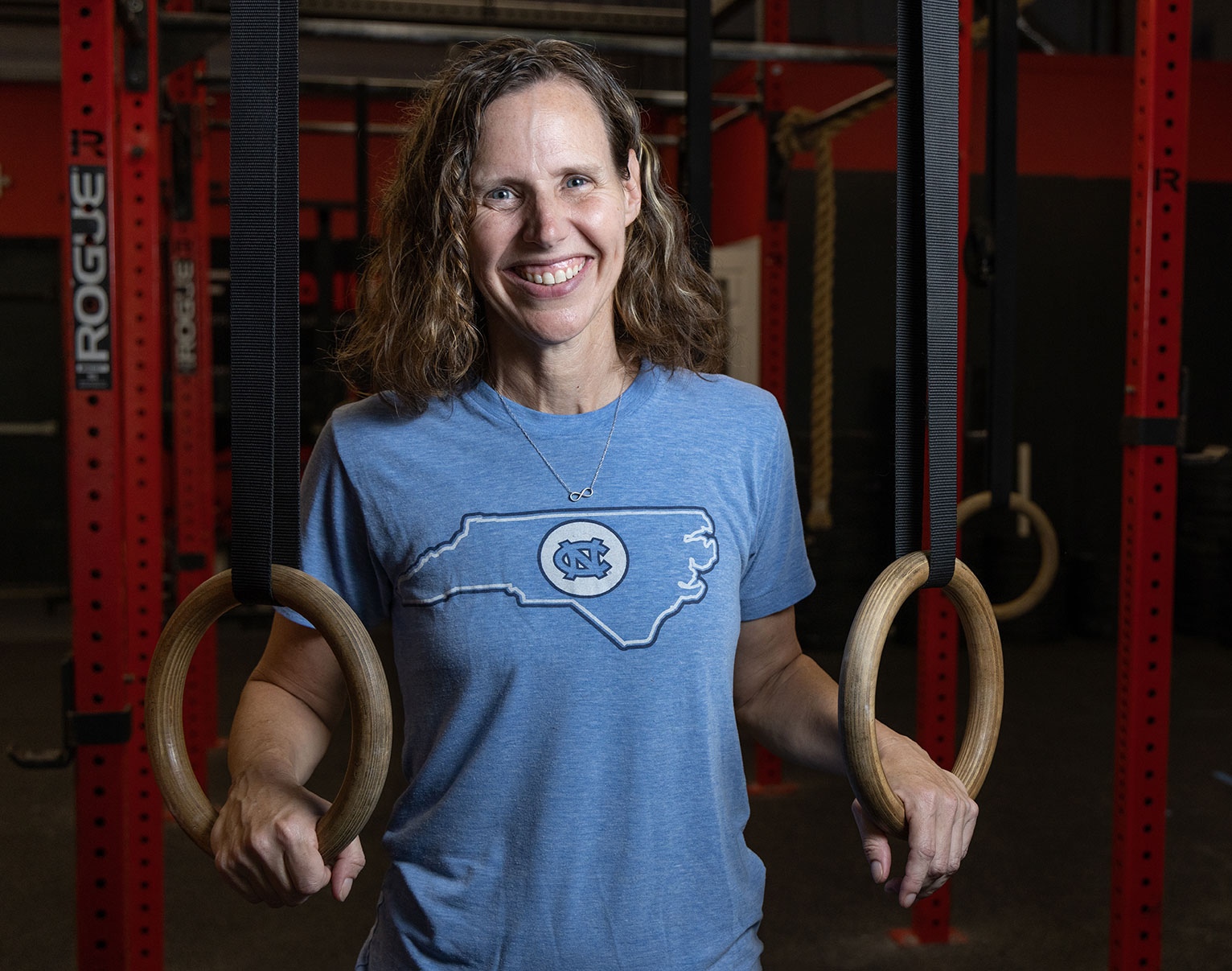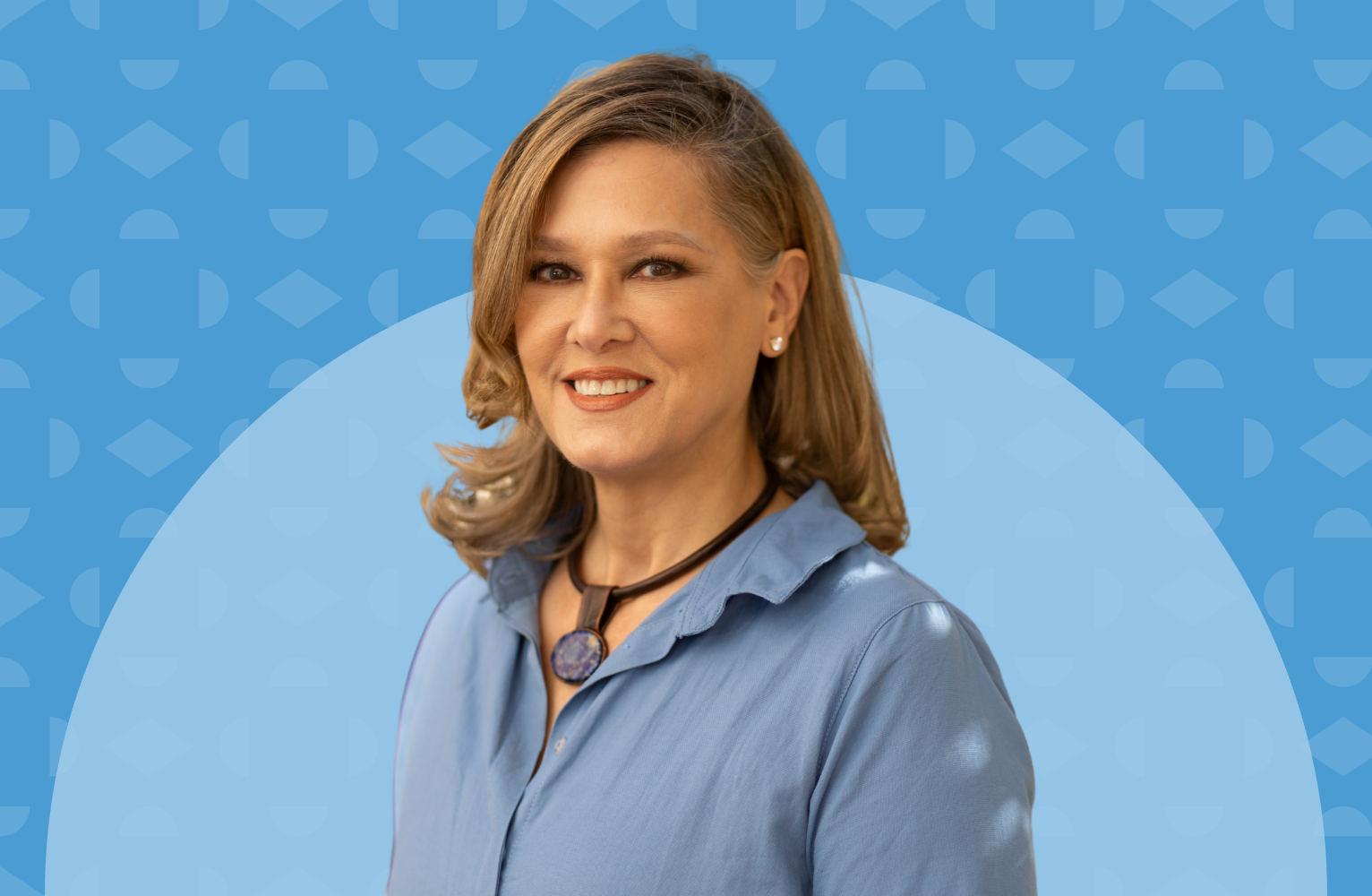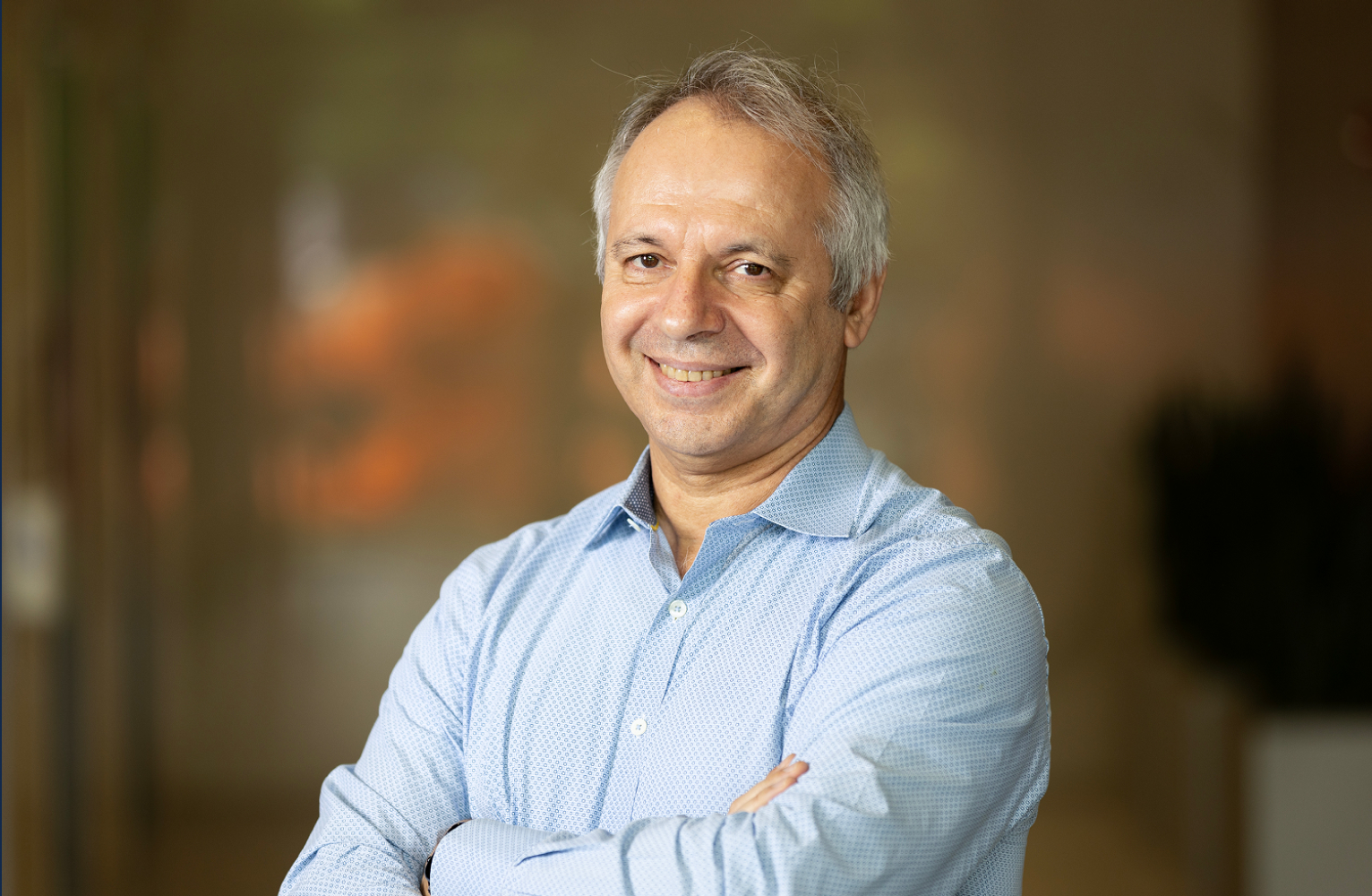
On Sunday afternoons, in a nondescript strip mall in Chapel Hill, muscles expand, hearts swell and a community thrives. It’s all happening at Power Hour, a fully inclusive, adaptive fitness class for young adults with autism and other developmental disabilities. At Power Hour, athletes of all ages, fitness levels and abilities get moving in a friendly, encouraging atmosphere.
“People here are so welcoming and patient with me at whatever level I’m at,” shared Hannah, an athlete in the class. “It’s not just an indifferent group of strangers; it’s a community.”
“I like meeting new people,” added Joey, “and it gets me off the couch!”
Hannah and Joey are among a number of athletes in the class who have autism. The class helps all attendees develop strength, balance, mobility and endurance — but the primary focus is on building connections and community.
“At Power Hour, we’re trying to build inclusive communities outside of school or work settings,” said Kara Hume, who coaches the class. An associate professor at the UNC School of Education and a faculty fellow at the UNC Frank Porter Graham Child Development Institute, Hume has worked with children and young adults with autism for more than 30 years. In the past 10 years, her work has focused more on supporting autistic adolescents and young adults.

“We know that exercise has proven positive effects on a variety of outcome areas, from academics to adaptive behavior,” Hume shared. “But there is still a great deal to understand about how exercise can enhance mental health and self-determination — two areas in which I have great interest.”
The classes start with social interactive games that have a fitness component, such as being on a team doing relays or assigning the class different exercises depending on whether they agree with a true or false statement, such as “I prefer UNC over Duke.” One side may be instructed to do sit-ups while the other side does push-ups. Just like any fitness class, there’s always a modification. Gunnar, a young man in the class who uses a wheelchair, is sometimes in his chair participating in group activities that tighten and loosen his muscles; other times he’s out of his chair doing physical therapy.
“I had some trouble keeping up at first,” shared Peter, an athlete who travels from Pittsboro, North Carolina, to attend the class. “But everyone is supportive, and I’ve made so many friends.” Another athlete, Rico, interjected: “I like the push-ups.” (He was on the side who liked UNC, though, so he did sit-ups.)
Hume is part of a truly exceptional group of faculty members and scholars at the UNC School of Education with expertise in special education who are focused on serving students with autism. These faculty seek to find solutions to improve health and wellbeing through applied research.
“We are in communities, in homes, in schools working with autistic individuals who are providing their input along the way,” Hume said. “I regularly hear from these youth, their families and teachers, that we need more opportunities to build connections, more places to foster a sense of belonging and more efforts to transform communities to better understand and support those who are neurodiverse. I believe sports and fitness — and in this case, Power Hour — can be a vehicle for all of this.”
As the coach of Power Hour, Hume said she can see the many benefits for all of the participants in each class. “I can measure that in the amount of laughing we do and the amount of weight we move. But as a researcher, I have always wanted the opportunity to formally examine the social and health impacts of our program.”

As the newly appointed Richard “Dick” Coop Faculty Scholar in Education, Hume now has that opportunity. With the support of the award, she designed and executed a small-scale pilot study on the effect of Power Hour — both on the athletes with disabilities and the other gym members who join in the class.
The goals of this study are two-fold. One, she would like to see a reduction in feelings of isolation and loneliness for young adults with autism. She also wants to measure the benefits for participants who do not identify as having a disability.
“Everyone shares that they feel more engaged, happier and healthier at the end of our sessions,” she said. “Special education research usually looks at the impact of activities on those with disabilities, but I think it is equally important to understand how we all benefit from working out and hanging out together. I want to know more about how the full community is thriving as the result of our participation in Power Hour — recognizing it’s a much more reciprocal process. I don’t think we know as much about that as we should.”
Hume built on this work and submitted a grant request with a similar focus to the National Institutes of Health. The preliminary data from this pilot study helped her make a more compelling case, resulting in a $3.5 million grant from NIH to begin measuring the impact of inclusive fitness efforts.
The Richard “Dick” Coop Faculty Scholar in Education award is supported by a gift from Malbert Smith III ’77 (MEd), ’80 (PhD) and his wife, Alisa Edwards Smith. The Smiths made the gift in honor of three former UNC School of Education professors — Richard “Dick” Coop, Gary Stuck and Kin White — to create opportunities and provide invaluable resources to help advance the research of faculty scholars.
“I appreciate that the school sees the value of this type of work and is investing in finding ways to keep making this important work happen,” commented Hume. “I am grateful and excited to have the opportunity to more formally study the effects of Power Hour with the support of these funds.”
Power Hour is a free, volunteer-based community activity open to all, and operates because of the generosity of so many, including co-founder Hayley Church, coordinator Elizabeth Cefalo and the owners and members of Crossfit Chapel Hill. Power Hour is well connected to the UNC-Chapel Hill community. Postdoctoral researcher Laura Ornelas is co-leader of the group, and current and past students and employees have volunteered and/or participated as athletes in the class.
Related Stories






